Suffering Effectively: Reflections on the First Noble Truth
/// By David Chernikoff
I first heard the phrase effective suffering from meditation teacher Shinzen Young, who used it in a story he told about the renowned Christian contemplative Thomas Merton. 1 Merton lived quite a bohemian life before he converted to Catholicism and then entered one of the church’s strictest and most ascetic monastic orders. When he was asked about his decision and the suffering that such a lifestyle involves, Merton said that he didn’t become a Trappist monk so that he would suffer more than other people but that he wanted to learn to suffer more effectively.
I found the idea of effective suffering quite off-putting at first. “Who in the world wants to suffer?” I asked myself. “Let alone effectively, whatever that means.” When I looked deeply at the phrase and spent time reflecting upon it, however, I recalled a number of similar teachings I’d heard from other teachers I greatly respect. Ajahn Chah, the great Thai forest master, said “There are two kinds of suffering: the suffering that leads to more suffering and the suffering that leads to the end of suffering. If you are not willing to face the second kind of suffering, you will surely continue to experience the first.” I remember a related statement that Ram Dass made, one that caused me to pause and reflect deeply on my life. “Despair is the necessary prerequisite for the next level of consciousness.” His teacher, Neem Karoli Baba, gave similar teachings. “Suffering is grace,” he was known to say. “Suffering brings me closer to God.” And again, from the influential Zen teacher Charlotte Joko Beck: “As you embrace the suffering of life, the wonder shows up. They go together.” 2
I think it’s safe to say that no living being, human or non-human, wants to suffer. I also think it’s safe to say that every human being (and I imagine every sentient being) suffers at times. There seems to be no getting around the fact that embodied life involves difficulties on a variety of levels. This is what the Buddha pointed out in the first of his four noble truths: Life involves suffering.
As obvious as this fact seems to me now, I can look back on earlier parts of life and see that I didn’t really believe it to be true. Other people often looked happier than I felt. Perhaps they were simply better actors, or perhaps they really were healthier, more joyful people. Lost as I was in unconscious mental and emotional patterns that perpetuated the disharmony in my inner world, I interpreted the suffering in my life as my problem. I wrestled with deep feelings of inadequacy and told myself stories in which I was somehow to blame for my unhappiness. It was only years later, when I studied eastern and western psychology, that I came to understand how few people come through childhood without their version of similar feelings to my own. As the comedienne Mary Karr put it, “A dysfunctional family is any family with more than one person in it.”3
When I was twenty-four, shortly after moving to Boulder, Colorado to attend the inaugural summer program at Naropa Institute (now Naropa University), a friend suggested I see an astrologer to get some guidance for the next steps in my life. While the astrology reading was not a life-changer, the astrologer and I had a very powerful connection and soon became romantically involved. Our first three months together were an ascent unlike any I had experienced before in an intimate relationship. The phrase “falling in love” took on a new and truly magical meaning in my life. Within weeks, I moved into her house, connected deeply with her toddler, and convinced myself that my life was finally coming together. Sadly, the conventional wisdom that what goes up must come down proved to be the case, and shortly before the holiday season, we parted ways. The emotional descent was brutal, and our breakup left my heart feeling shattered into a thousand pieces.
I quickly concocted a story in which this “failed relationship” was simply more evidence that I was too wounded a human being to ever find and sustain a committed intimate partnership. That’s when a close friend of mine gave me a holiday gift, a copy of Cutting Through Spiritual Materialism by the Buddhist teacher, Chogyam Trungpa, Rinpoche. Because I felt so raw and open, I was able to take in what the book was saying in a way that felt deeply transformative. Specifically, I understood what he was saying about the first noble truth. He made the point repeatedly that unsatisfactoriness is an existential given at certain times in a human life. The process of awakening, from a spiritual perspective, begins and accelerates with the acceptance of this unsettling fact.
For many of us, suffering of one kind or another is what motivates us to explore spiritual teachings in the first place. Yes, it’s true that there are people who step onto the path solely because they have a passionate intellectual curiosity about “how it all is” and “what’s really going on.” Others seem to have a karmic jump-start at an early age that enables them to quickly see through the superficial aspects of modern life and focus on its deepest meaning. Still, my experience is that the vast majority of people who see themselves as being on a spiritual journey are initially motivated to awaken by a desire to move beyond their personal suffering. I believe it’s for this reason that Ajahn Chah, Thomas Merton, and many other teachers regularly made comments like those previously mentioned. They invite us to choose to see our painful experiences as what Ram Dass called “grist for the mill of awakening.”4
Important questions naturally arise when I consider their invitation. What is the next step after fully acknowledging the truth of suffering? How can I actually learn to turn poison into medicine, to transform my very human difficulties into steppingstones on the path of liberation? Which practices are best for me to work with at this point in my process of awakening? When is it time to focus my efforts on social justice issues and service to others? How can I best alleviate suffering and bring more well-being, peace, and joy into the world?
These are the kind of issues we’ll be exploring in the online retreat I’ll be leading for Shambhala Mountain Center. We’ll come together to create a supportive learning community that will be designed to help each participant move to a deeper level of joy, wisdom and compassion. The Buddha wisely included the sangha as one of the three refuges. At the conclusion of this retreat, my hope is that we’ll all come away with a deep appreciation for why he chose to do that and for what can happen when a group of sincere practitioners gather together in service to the awakening of all beings everywhere.
About the Author:
 David Chernikoff
David Chernikoff
David Chernikoff began the study and practice of meditation in 1971 and started teaching insight meditation in 1988. His teaching has been influenced by senior teachers from the Insight Meditation Society and Spirit Rock, Tibetan teachers with whom he studied during a 3-year stay in Nepal, and spiritual guides from other contemplative traditions, most notably Ram Dass, Father Thomas Keating, Zen teacher Yvonne Rand, and Rabbi Zalman Schachter-Shalomi. David taught psychology and meditation for many years at Naropa University. He currently serves as one of the guiding teachers of the Insight Meditation Community of Colorado and has a private practice in Boulder, Colorado. David teaches retreats and workshops throughout the U.S. Learn more at www.davidchernikoff.com
_________________________________________________________________
- Learning to Suffer More Effectively, article by Shinzen Young, https://www.awakin.org/read/view.php?tid=705
- Charlotte Joko Beck, Ordinary Wonder: Zen Life and Practice (Boulder: Shambhala Publications, 2021), 23.
- Mary Karr in The Liars’ Club; Goodreads website-https://www.goodreads.com/quotes/36308-a-dysfunctional-family-is-any-family-with-more-than-one
- I heard him use this phrase in numerous talks; he also co-wrote a book, Grist for the Mill, with Stephen Levine.


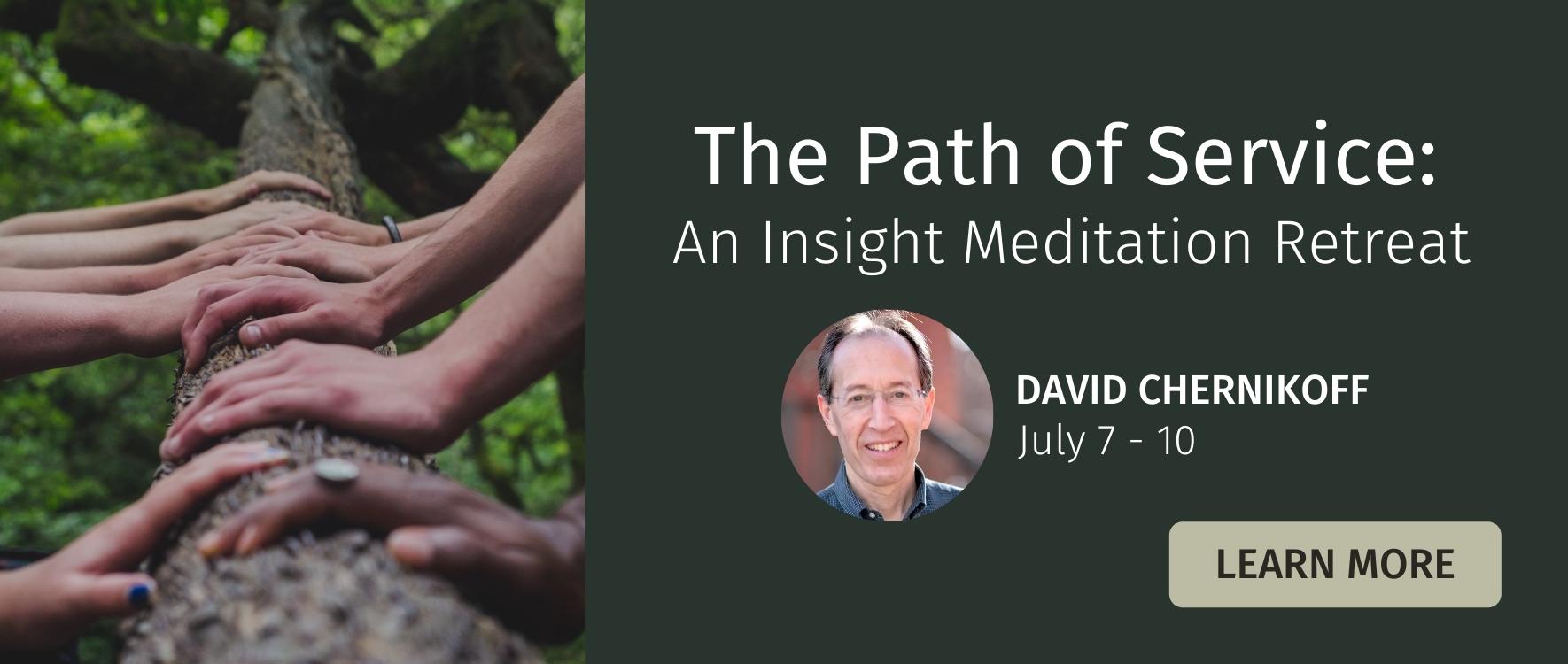

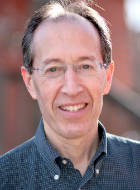
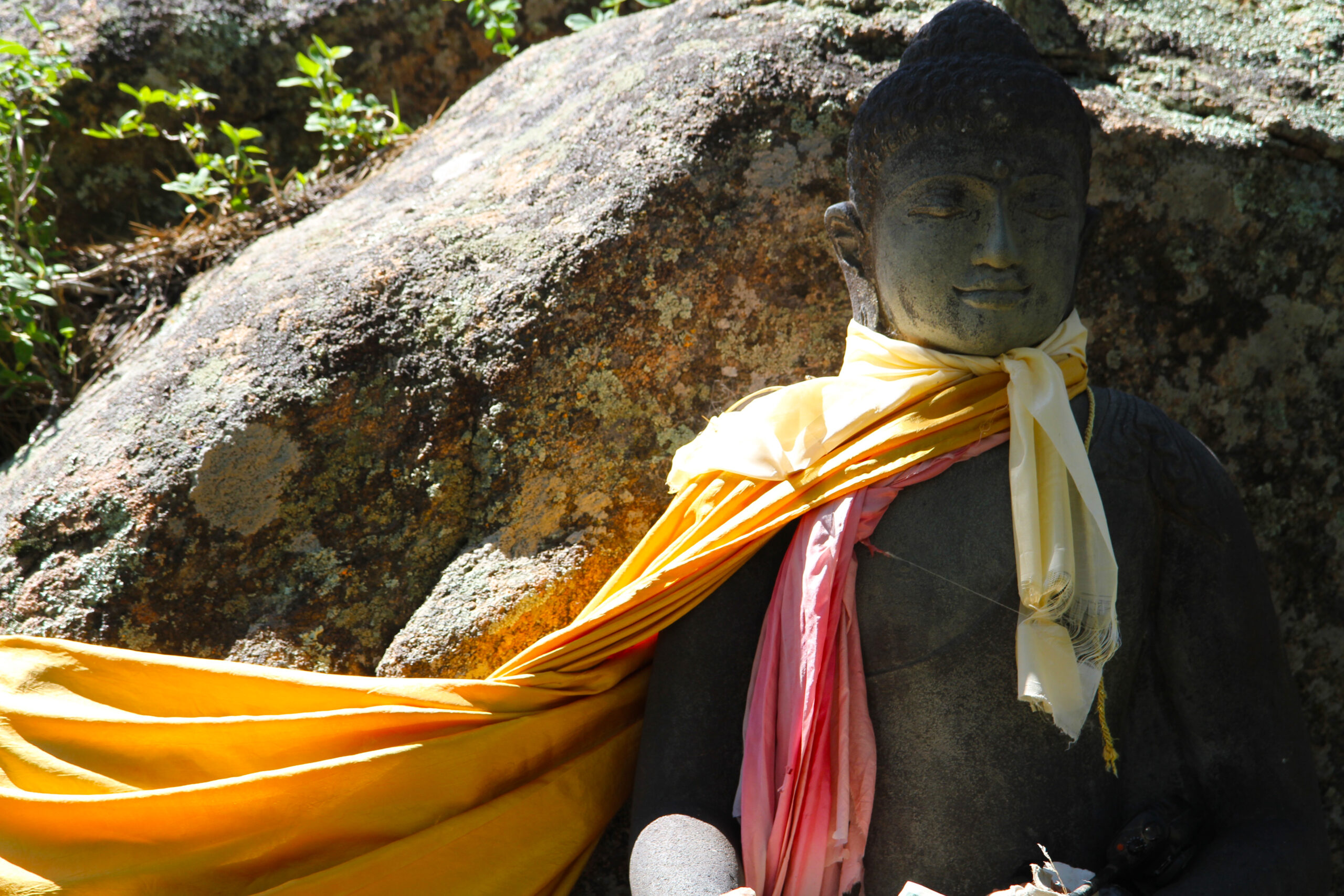


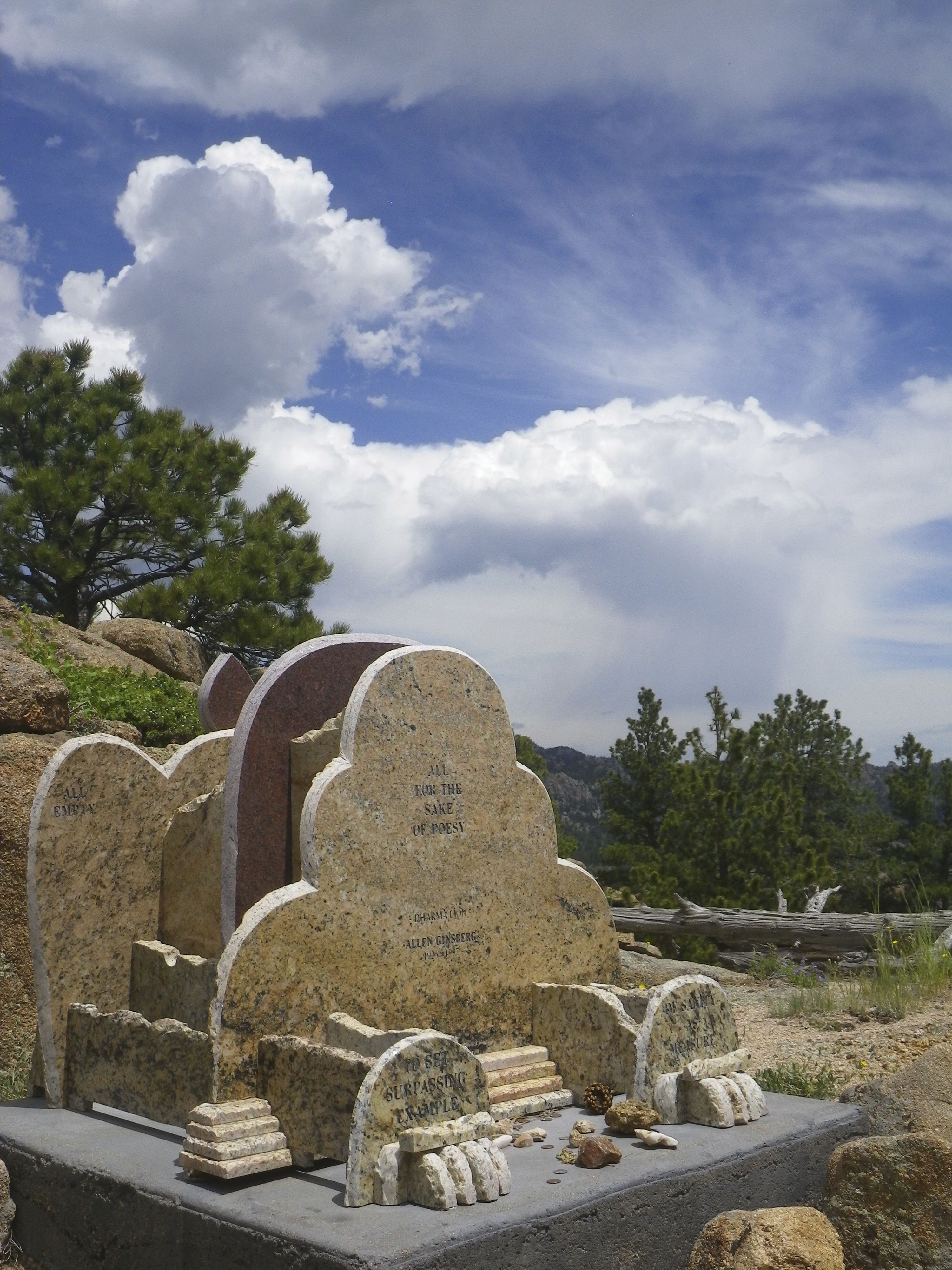
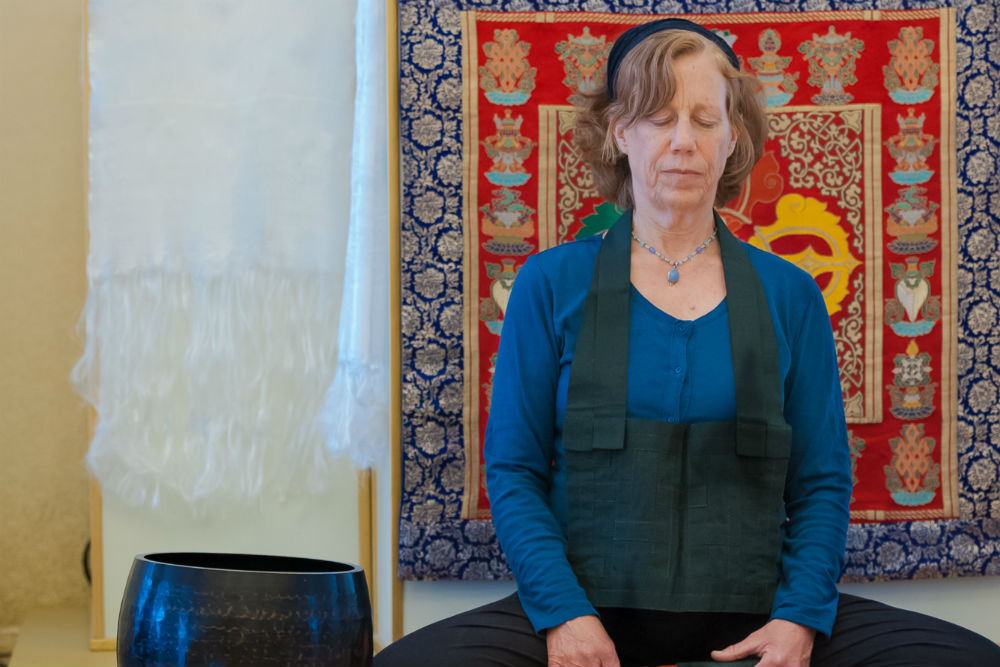
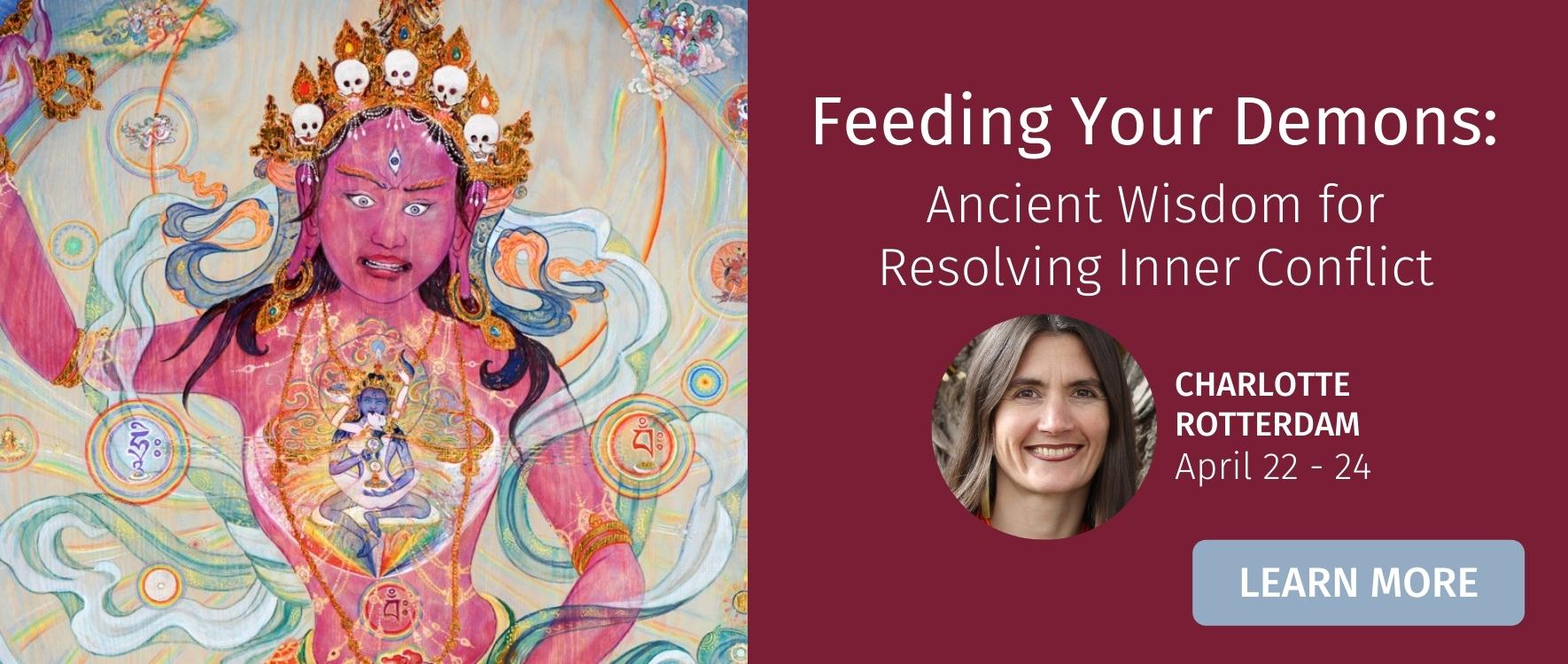


Leave a Reply
Want to join the discussion?Feel free to contribute!